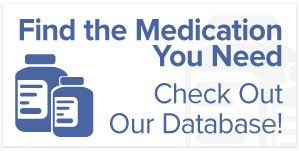Millions of people around the world suffer from Irritable Bowel Syndrome (IBS), a condition that results in abdominal pain, bloating, and changes in bowel habits. While there can be multiple causes of IBS, it is often difficult to pinpoint the exact one. However, there are many potential treatments available.
What is Irritable Bowel Syndrome?
Irritable bowel syndrome affects the gastrointestinal tract, which comprises of the stomach and the intestines. The disorder can cause abdominal pain, cramping, bloating, gas, diarrhea, constipation or a combination of these symptoms. It is estimated to affect between 10% and 20% of people around the world and is more common in women than men. While it isn’t life-threatening, IBS can significantly impact the quality of life due to its chronic nature.
It is a “functional” disorder, meaning it affects how the digestive system works without any physical changes in structure. The exact cause of IBS remains unknown, but several factors are believed to play a role in its development.
Causes of Irritable Bowel Syndrome
The exact cause of IBS is unknown; however, several possible explanations exist for why someone might get the condition. These include abnormalities in the digestive system’s muscle contractions, gut bacteria (microflora) changes, food sensitivities, immune system problems, stress and anxiety. Let us look at each cause.
Abnormalities in Muscle Contractions
The digestive system comprises muscles that contract (squeeze) to move food through the intestines. In people with IBS, these muscle contractions may be stronger or weaker than normal and can cause pain and changes in bowel habits.
Changes in Gut Bacteria
Some research suggests that there might be an imbalance of bacteria in the gut of people with IBS. This could result from taking antibiotics or other medications, consuming a diet low in fiber or eating processed foods, exposure to viruses or bacteria in contaminated food, etc.
Food Sensitivities/Allergies
Food allergies/sensitivities are another possible cause of IBS. Eating foods that a person is sensitive or allergic to can trigger symptoms such as abdominal pain, bloating, diarrhea and constipation.
Problems with the Immune System
The immune system protects the body from disease-causing agents like bacteria, viruses and toxins. In some cases, an overactive immune system may be responsible for causing IBS symptoms by producing inflammation in the digestive system.
Stress and Anxiety
Stress and anxiety are also believed to be potential triggers of IBS. People with this condition often report experiencing more severe symptoms when feeling anxious or stressed out. This is because stress can affect how our bodies process food, and digestion can become impaired.
Symptoms of Irritable Bowel Syndrome
The symptoms of IBS can vary from person to person. In general, the symptoms of IBS include the following:
Abdominal Pain or Discomfort
IBS-related abdominal pain or cramping tends to be related to eating and is often relieved by having a bowel movement. It is sometimes described as an uncomfortable pressure in the abdomen which may come on suddenly or gradually over time. The location of the discomfort can sometimes shift from one area of the abdomen to another.
Diarrhea, Constipation or Both
IBS can cause either diarrhea (loose and watery stools) or constipation (difficulty passing stool or small, hard stools). When both occur together, it is referred to as alternating IBS. People with alternating IBS may have frequent bowel movements followed by days of constipation.
Changes in Stool Frequency and Consistency
People who suffer from IBS often experience changes in the frequency of their bowel movements. This could mean having fewer than three bowel movements per week up to more than three per day. The stool’s consistency can also vary from loose and watery stools to harder and lumpier stools.
Bloating or Gas
Abdominal bloating and gas are the most common symptoms of IBS. People may experience a feeling of fullness in their abdomen, which can be uncomfortable. There could also be an increase in flatulence (passing gas).
Urgency to Have a Bowel Movement
People with IBS often feel an urgent need to have a bowel movement, but this is not always accompanied by actual diarrhea or loose stools. This urgency can create anxiety and inhibit many daily activities.
Mucus in the Stool
It is common for people with IBS to find mucus in their stool during bouts of diarrhea or constipation. Mucus is a clear, slippery substance produced by the body to keep the lining of the intestine lubricated and healthy.
Feeling That The Bowels Aren’t Completely Empty After a Bowel Movement
People with IBS often feel that their bowels are not completely empty after having a bowel movement, even though they may have had diarrhea or multiple stools. Spasms can cause this in the colon or rectal muscles, preventing the evacuation of stool.
The intensity of these symptoms may also change over time. These symptoms may only be present occasionally for some people, while for others, they can be more persistent and severe. It is important to note that there currently is no diagnostic test for IBS, so most diagnoses are based on an individual’s reported symptoms.
Treatment of Irritable Bowel Syndrome
Treatment of IBS depends on the individual and the type of symptoms. The most common treatment options include the following.
Dietary Modifications
Dietary modifications are one of the essential parts of treating IBS. Eating a fiber-rich diet can help reduce symptoms such as constipation and diarrhea. Cutting down on foods that trigger bloating or gas may also be helpful. It is recommended to avoid dairy products if they worsen symptoms. Additionally, avoiding carbonated drinks and artificial sweeteners may help reduce abdominal pain and discomfort.
Stress Management
Stress can often make IBS symptoms worse, so it is essential to manage stress levels as part of treatment for IBS. Relaxation techniques such as yoga or deep breathing can help reduce stress levels. It may also be helpful to practice mindfulness and meditation and engage in activities that help reduce anxiety. Additionally, scheduling regular time for leisure activities can reduce stress levels and improve the overall quality of life.
Medications
In some cases, medications may be recommended to treat IBS symptoms. Anticholinergic medications relieve abdominal pain and spasms, while laxatives can help with constipation. Antidiarrheal drugs may also be used if needed, although they should only be taken on an as-needed basis. Probiotics are beneficial for some people with IBS and are available in supplement form or food products like yogurt or fermented vegetables.
Supplements
In some cases, certain supplements may be recommended to help reduce IBS symptoms. Herbal remedies such as peppermint oil and chamomile are beneficial for relieving abdominal pain and cramps. Additionally, omega-3 fatty acid supplements can help reduce bloating and gas, while probiotics can help improve overall gut health. Supplements should only be taken after consulting a healthcare professional to make sure they are safe for the individual’s specific situation.
Overall, treatment of IBS is highly individualized and dependent on the type of symptoms experienced by the person. A combination of treatments may be necessary to alleviate symptoms and improve quality of life.
Final Thoughts
Irritable Bowel Syndrome (IBS) is a common condition that affects the digestive system and can cause symptoms such as abdominal pain, bloating, gas, constipation, and diarrhea. While there is no single test or cure for IBS, dietary modifications, stress management techniques, medications, and supplements may help reduce symptoms.
It is important to consult with a healthcare professional to determine the most effective treatment options for an individual’s specific situation. With proper management of IBS symptoms through lifestyle changes and medical treatment, if necessary, people can go on to lead healthy lives.



